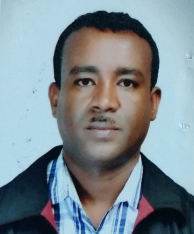Continuing education and Professional development
Can anyone elaborate on what continuing education and professional development refer to? I needed additional clarification on what has been addressed in the training material. I mean supported with examples of the mentioned issues. Thanks

Comments
I need also clarification , different understanding among mentors and assessors ,
Professional Development
Professional development is a process for developing individual skills and capacities to help professionals gain more knowledge, improve their performance in a given area of expertise, or move up the ladder.
Professional development typically takes place outside of normal work hours- but it’s important that this time doesn’t come at the cost of other aspects like family life, leisure time or sleep. Professionals should always be aware that professional development is there to serve them- not vice versa!
It can take many forms, including training courses offered by trade associations; mentoring from senior professional with different specialties; workshops on various topics such as project management methodology or leadership strategies; and self-directed research into new areas related to professional practice.
Continuing Education
Continuing education on the other hand, is a general term that refers to any type of training or course you can take if you’re a professional. This includes both professional development and continuing education courses. Continuing education is defined as “activities designed specifically for practicing professionals.” Continuing professional education should be applied knowledge: merely taking classes isn’t enough- instead, the learning needs to be applied back into your work environment so that it’s relevant and practical.
One example of this would be attending a conference where new developments are presented by experts on the topic; then keeping up with those updates through blogs and other media channels. A good way to get started is by finding out what types of conferences are being held and what courses they offer. Many professionals report that the quality of training offered at conferences is very high and the content is helpful to developing their technical competence.
Awad this is what I can say concerning your comment above.
Generally, a mentor signs off evidence and an assessor signs off the final assessment. A mentor can comment and either sign off or reject evidence. However, in some cases the mentor and assessor role overlap. Whilst the primary responsibility of an assessor is to sign off the final assessments, if needed they can sign off evidence too. This is up to the trust/organisation.
In my view, professional development had to do with the competencies one build while working. it could through work experience and training on the job, onsite training or coaching while continuing education could be increase in knowledge and skills from diploma level to degree level by means of formal education or short courses
Continuing education and professional development program is a knowledge and skills transfer program that must be available to laboratory staff that ensure personnel have up to date knowledge and skills necessary to meet ever changing clients needs and requirement and keep up with changes in science and technology as well as support individual progress on their career. this can be arranged to be conducted internally or have it conducted by external organization.
Examples of continuing education and professional development program include;
Thanks @Clement Aryee precisely put there